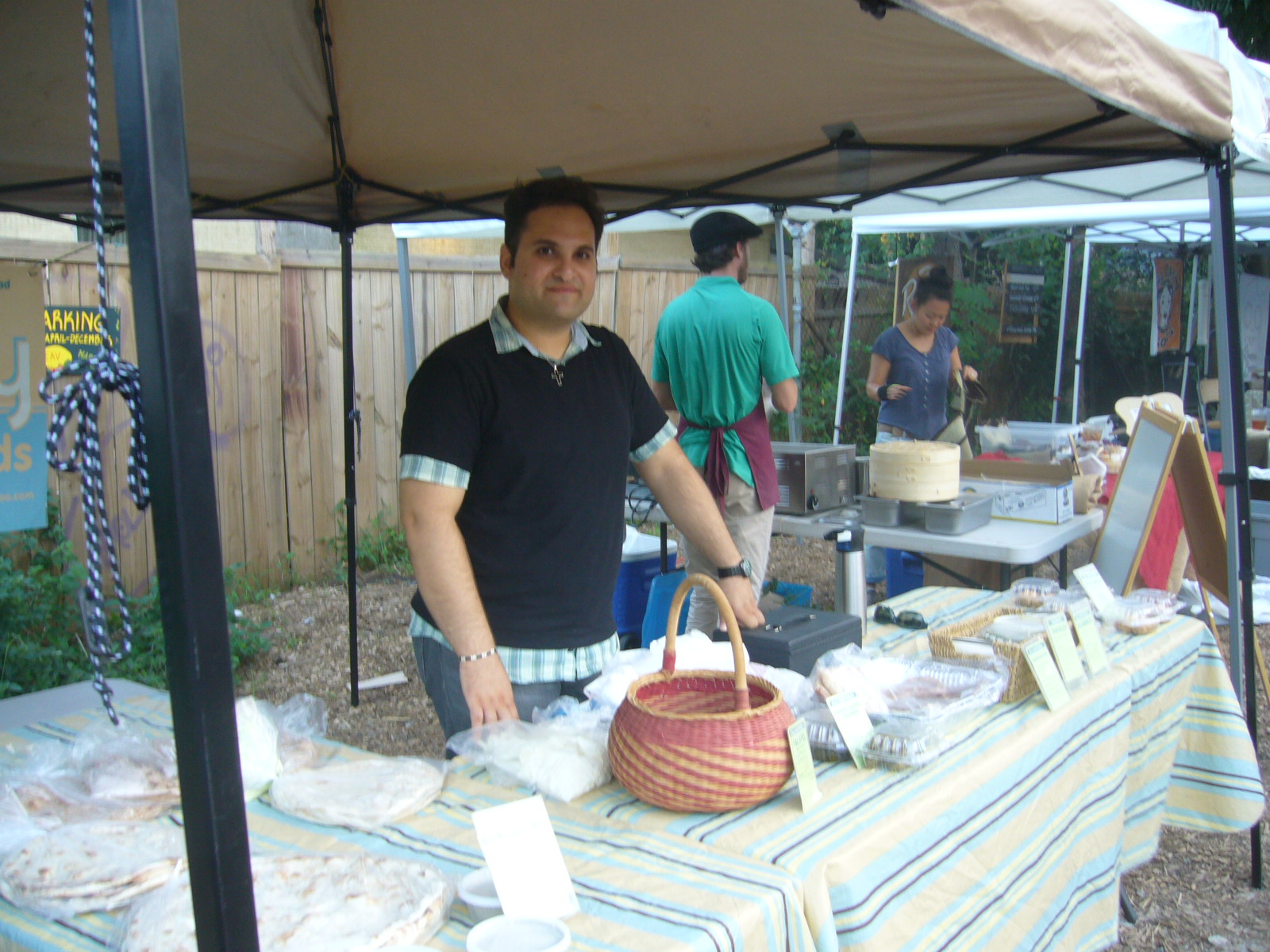Iraqi Refugees Risked Their Lives Alongside American Troops

Last week, Congress and the President did agree on something: to extend the Special Immigrant Visa Program for Iraq which expired on Monday.
When U.S. forces were in Iraq, they worked alongside local Iraqis who also risked their lives serving as translators and other support positions. A small number of Iraqi refugees have since made it to Atlanta, and have tried to start new lives here, while others are still waiting to get visas.
At local Farmers markets, like the one in East Atlanta, shoppers mingle with the vendors, asking about the freshness of their goods. But ask Zein Antune about his naan bread, humus and babaganoush and you might learn more about the story behind his family’s bakery, Heavenly Breads.
“I’m Zein Antune from Iraq, I’ve been here about three years.”
27-year old Zein and his family came here from Baghdad three years ago, as refugees. When asked what it was like living in Iraq during the war, his cheery demeanor went quiet. “It was scary. very scary….. you know… I don’t want to remember. “
His family is Christian, a minority in Iraq, and they felt very discriminated against because of this.
“A lot of people may not believe that. I was born to a Christian family and my family goes back to a long history of Christianity.” He says he was bullied since he was kid, even beaten for being Christian. “I wasn’t able to show my cross when I walked down the street.”
Zein and his mother also worked as interpreters for the U.S. military. “It was a risky job. We needed the money. that’s one of the reasons that made us think about taking this kind of job.”
No one knew they were working for the Americans. Not even his father, who still does not know and is still in Iraq.
“We did not tell anyone, because if we told anyone, it might, you know, get us killed. It’s like signing for your death.”
Zein, his mother and younger sister managed to get refugee visas and came to Atlanta in 2011. They come from a family of doctors and engineers and none of them ever imagined owning a business. But they couldn’t find other jobs when they got here.
Zein is now in college trying to juggle work and study biology. He’s loves being free here, but says it’s not an easy life. “Everything is different. And for sure, you face discrimination everywhere you go.”
It’s also not easy getting a refugee visa to the United States.
“There are somewhere between 14 and 16-million refugees in the world today and less than one percent are ever resettled in a country like the U.S,” says Paedia Mixon, Executive director of the Refugee Resettlement Immigrations Services of Atlanta. Georgia is one of the top ten refugee resettlement sights in the U.S. and RRISA has resettled at least 86 Iraqis, 41 cases, in the past three years, including Zein’s family.
“We have refugees on staff here that came through SIV or refugee resettlement program, says Mixon, “and many of them still have family that are still there. And people think that the war is over, but if you listen to the news, bombings are still happening, people are still being targeted, it’s not safe.”
The SIV, or Special Immigrant Visa program, was set up specifically for Iraqis and later, Afghanis, who worked for U.S. forces.
That is how 58-year old Hadi Lazim came to Atlanta. He now works for RRISA as a driver, translator, and logistics guy. In Iraq, he was a radio flight engineer and pilot, and worked for the U.S. Army from 2003-2009.
“I did everything for them, according to my knowledge and experience in Iraq,” says Lazim. “I was a cultural advisor, interpreter and political advisor. We did many things to help them.”
On the front lines with American forces, Hadi saw colleagues killed and he himself was injured five times .
Death threats forced his family to abandon their home in 2005. Five years later, Hadi Lazim, his wife and four kids came to Atlanta through the SIV program. He says he’s grateful to be here and watch his children thrive.
“I’m teaching my family, my kids, that this is their country.”
But he and his wife are sick with concern over two children still in Iraq, waiting for visas.
“Unfortunately,” he says, “I left my oldest daughter and oldest son, they applied to come to the U.S. almost five years till now. They didn’t get any chance to move here.”
The Special Immigrant Visa program for Iraqis was to expire last Monday but on Friday, President Obama signed a bipartisan law, passed at the last minute, to extend the measure for a few more months.
9(MDAxODM0MDY4MDEyMTY4NDA3MzI3YjkzMw004))





